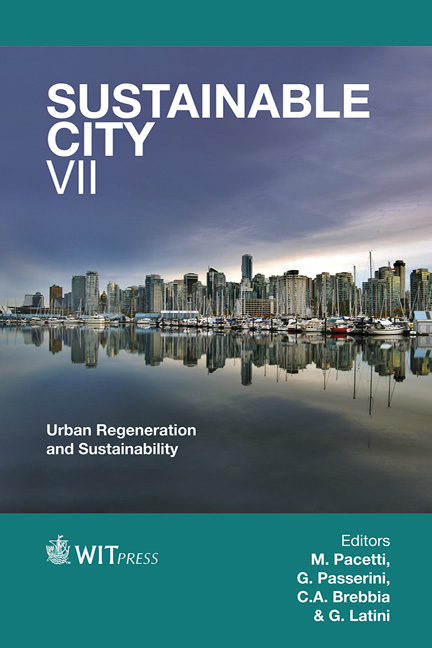Sustainable Food Systems: Building Resilience For Urban Communities
Price
Free (open access)
Transaction
Volume
155
Pages
8
Page Range
589 - 596
Published
2012
Size
334 kb
Paper DOI
10.2495/SC120491
Copyright
WIT Press
Author(s)
S. R. Raftery & R. C. Miner
Abstract
The current food system is dependent upon the prevailing industrial (rural) farming system that rests upon unlimited access to fossil fuel/energy, fresh water, land, plus relatively stable climates. In the twenty-first century, all of these resources are in steep decline and yet the demand for food is growing exponentially due to rising standards of living and growing urban populations. With the increasing affluence of consumers globally, along with the increase in population, the need for increases in food production continues to intensify. The possibilities for creating an ecologically sustainable, new urban food production system are limited only by our imaginations. If the focus is the growing of fresh food, locally/regionally, year round, the opportunities are huge. This paper explores the principles of sustainable food systems, and how these principles can be used to create a new, ecologically friendly, urban/periurban, knowledgebased, twenty-first century food production system. Keywords: urban agriculture, sustainable agriculture, food system, urban food production. 1 Introduction With the convergence of the dwindling availability of natural resources (energy, land, fresh water), along with extreme weather occurrences and an ever growing global population, there is a need to create a new food system that includes urban agriculture. The social constructs defining urban and rural have long separated two inexorably linked communities. Westernized urban dwellers have, with each successive generation of urban living, become more disconnected from the land and the food it produces. Until recently, with the local food movement, most
Keywords
urban agriculture, sustainable agriculture, food system, urban food production.





